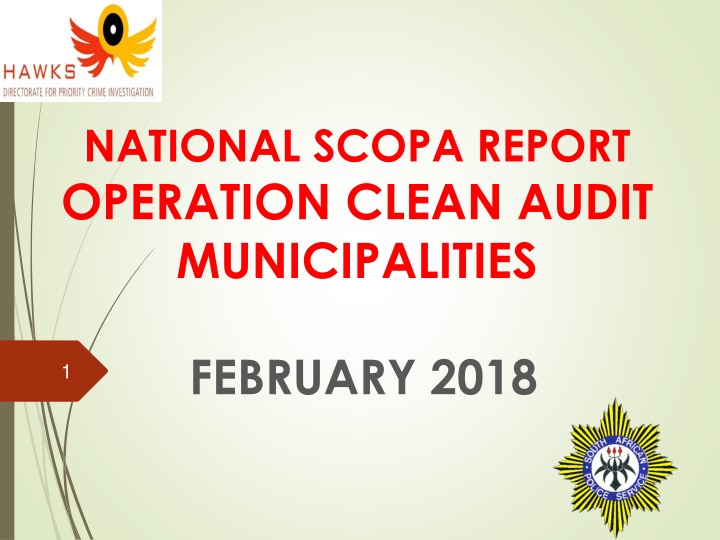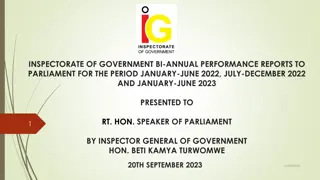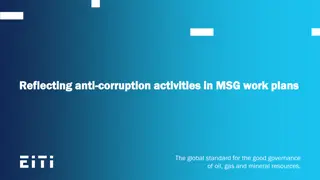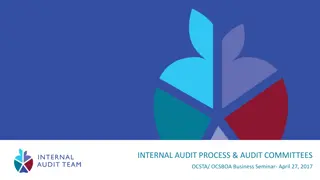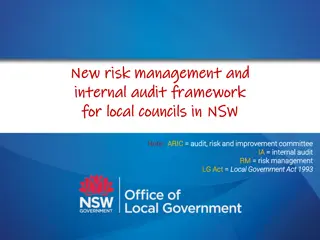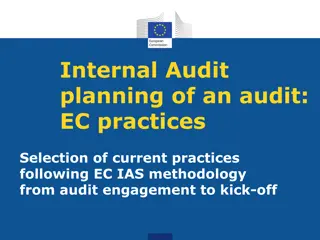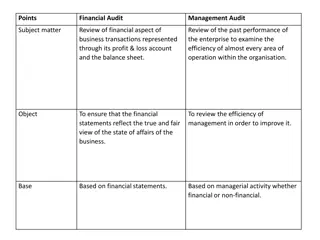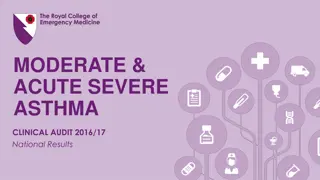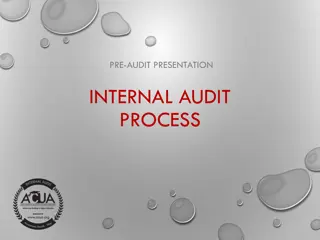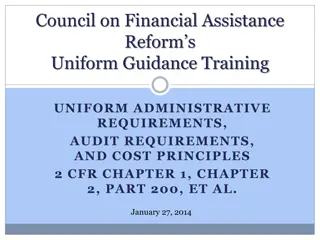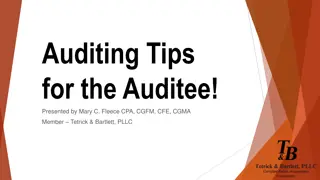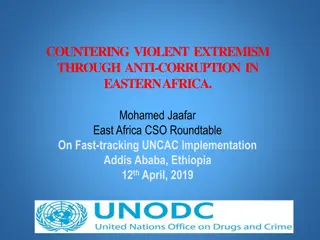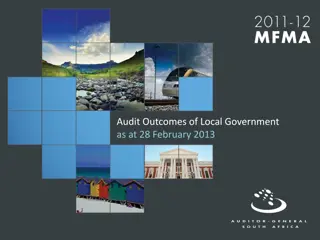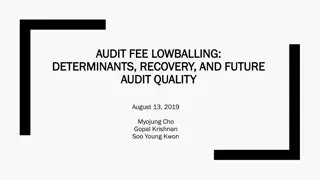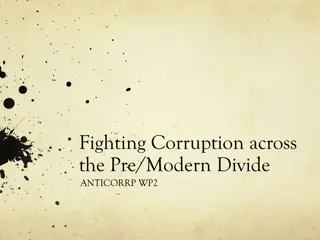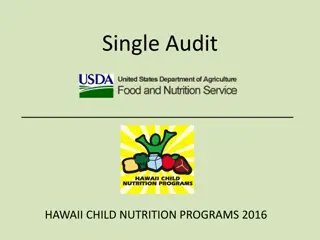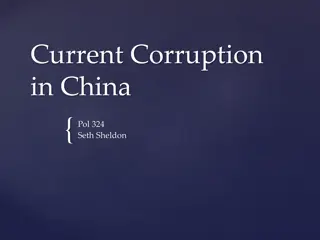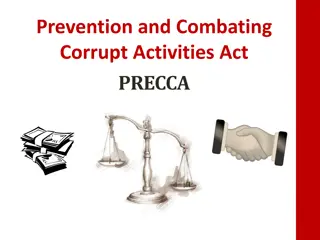Operation Clean Audit: Rooting out Corruption in Local Government
Operation Clean Audit aims to eradicate corruption in Local Government by prioritizing investigations, prosecuting corrupt officials, and strengthening anti-corruption legislation. The initiative has identified key focus areas to achieve its objective, including expediting investigations and ensuring convictions for corrupt practices. Challenges such as Municipal Managers' reluctance to file criminal cases have also been highlighted.
Download Presentation

Please find below an Image/Link to download the presentation.
The content on the website is provided AS IS for your information and personal use only. It may not be sold, licensed, or shared on other websites without obtaining consent from the author.If you encounter any issues during the download, it is possible that the publisher has removed the file from their server.
You are allowed to download the files provided on this website for personal or commercial use, subject to the condition that they are used lawfully. All files are the property of their respective owners.
The content on the website is provided AS IS for your information and personal use only. It may not be sold, licensed, or shared on other websites without obtaining consent from the author.
E N D
Presentation Transcript
NATIONAL SCOPA REPORT OPERATION CLEAN AUDIT MUNICIPALITIES FEBRUARY 2018 1
2 OBJECTIVE The main goal of Operation Clean Audit is to root out corruption in the Local Government sphere and to ensure that the latter achieve clean audits. Operation Clean Audit was rolled out in the North West Province on 11 September 2009 and was implemented systematically in all other provinces. 7/29/2024
3 KEY FOCUS AREAS - DPCI The key focus area of the Directorate (Relating to Operation Clean Audit) is to ensure that: investigations concerning corruption and fraud involving Local Government and Government departments are prioritized and expedited; To ensure that corrupt officials are identified and criminally prosecuted; To identify shortcomings in Local Government Departments systems, procedures and practices that contributes towards creating an environment for fraud and corrupt activities; To contribute and to ensure that by 2019, 120 persons are convicted for corruption. To contribute and to ensure that by 2019, 1000 public officials are convicted for corruption or offences related to corruption; The afore -mentioned two focus areas points falls under the mandate and scope of ACTT; To contribute in strengthening Anti-Corruption legislation to provide for more stringent penalties, To protect whistle blowers including those in the private sector. 7/29/2024
4 NATIONAL PICTURE NATIONAL PICTURE OPERATION CLEAN AUDIT OPERATION CLEAN AUDIT 315 CASES ON HAND COURT CASES 107 INVESTIGATION 135 INVESTIGATIO 73
NATIONAL PICTURE: MUNICIPALITIES 5 SPP/DPP 73 22% 0% COURT 107 33% INVESTIGATION 135 45%
NATIONAL OPERATION CLEAN AUDIT STATUS REPORT: MUNICIPAL PICTURE PROVINCE ON HAND COURT 6 INVESTIGATION SPP WESTERN CAPE 37 8 23 6 EASTERN CAPE 56 27 22 7 NORTHERN CAPE 29 12 11 6 NORTH WEST 31 12 0 19 FREE STATE KWAZULU NATAL 13 48 8 12 5 24 0 12 MPUMALANGA SERIOUS ECONOMIC OFFENCES GAUTENG LIMPOPO 32 22 8 5 18 15 6 2 43 4 14 1 15 2 14 1
CHALLENGES 7 Municipal Managers instruct private institutions to conduct audits and when criminal cases have been identified, they don t want to be complainant and state that they need a Council Resolution. Municipal Managers interpret Section 34 of the Prevention and Combating of Corrupt Activities Act, 12 of 2004 (Duty to report) in a manner that amounts to malicious compliance, as they often provide vague (empty) reports based on media articles; Most of the audits done by municipalities do not provide sufficient evidence for criminal investigations but relate mostly to departmental misconduct which have to be dealt with internally. Non availability of relevant evidential documentation (original documents) as exhibits to corroborate evidence and to prove the allegations in terms of the best evidence rule. Reshuffling of Municipal Officials, sometimes they tend to be aggrieved and do not co-operate due to their political positions. The media is often aware of information from leaked reports but crimes were never reported to the police for investigation.
